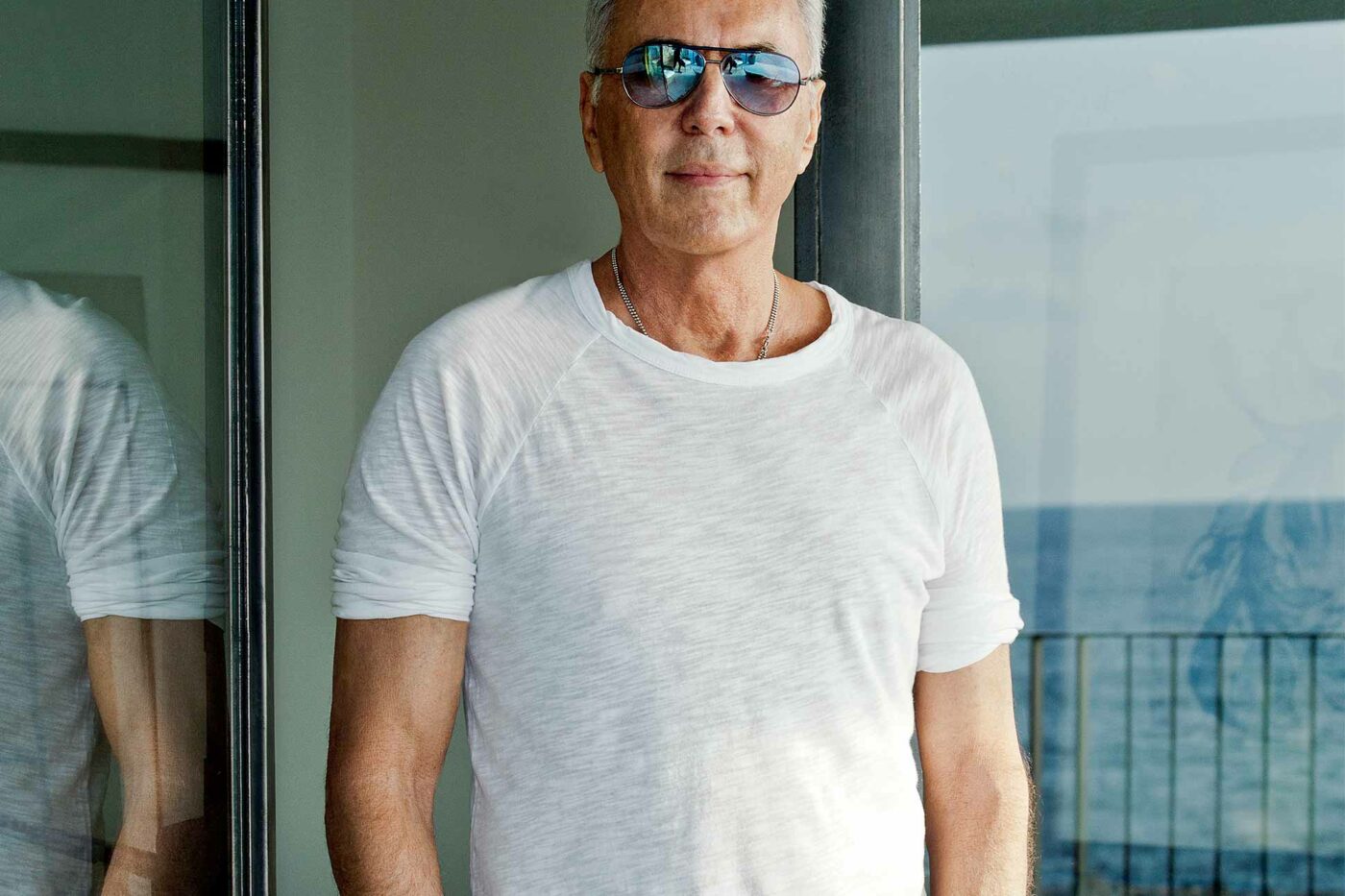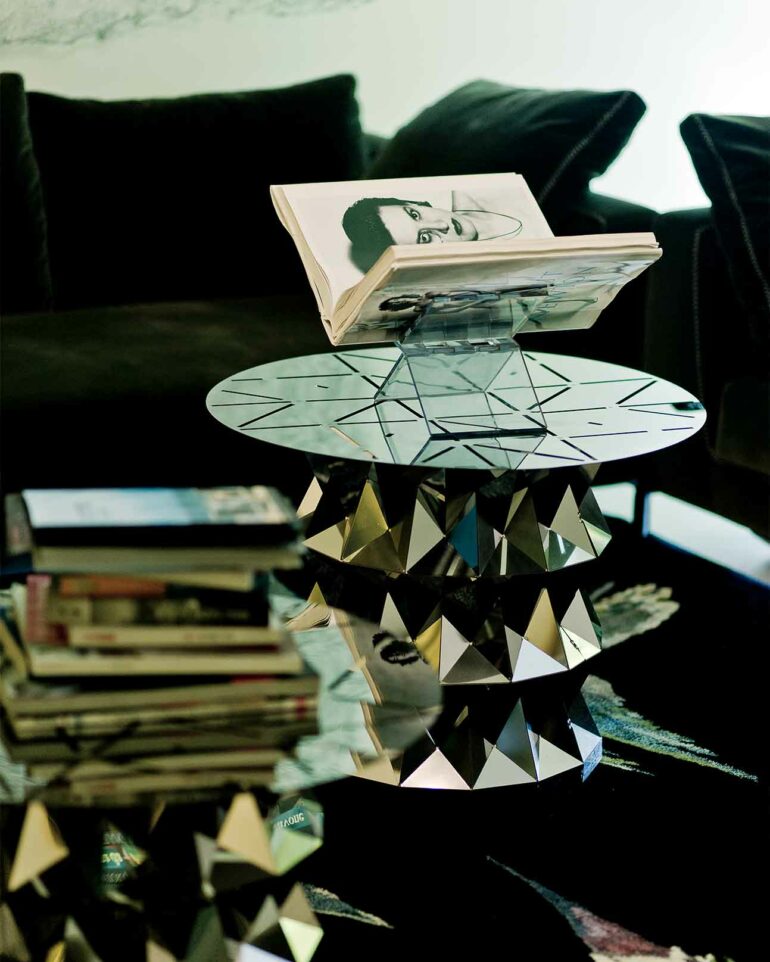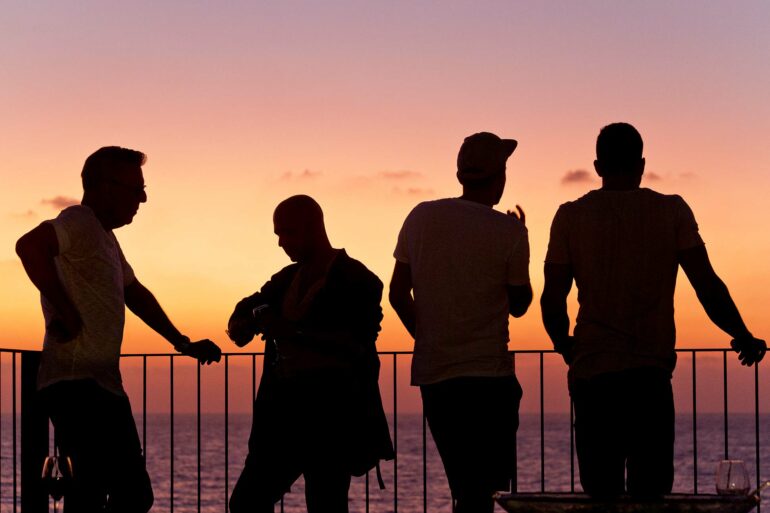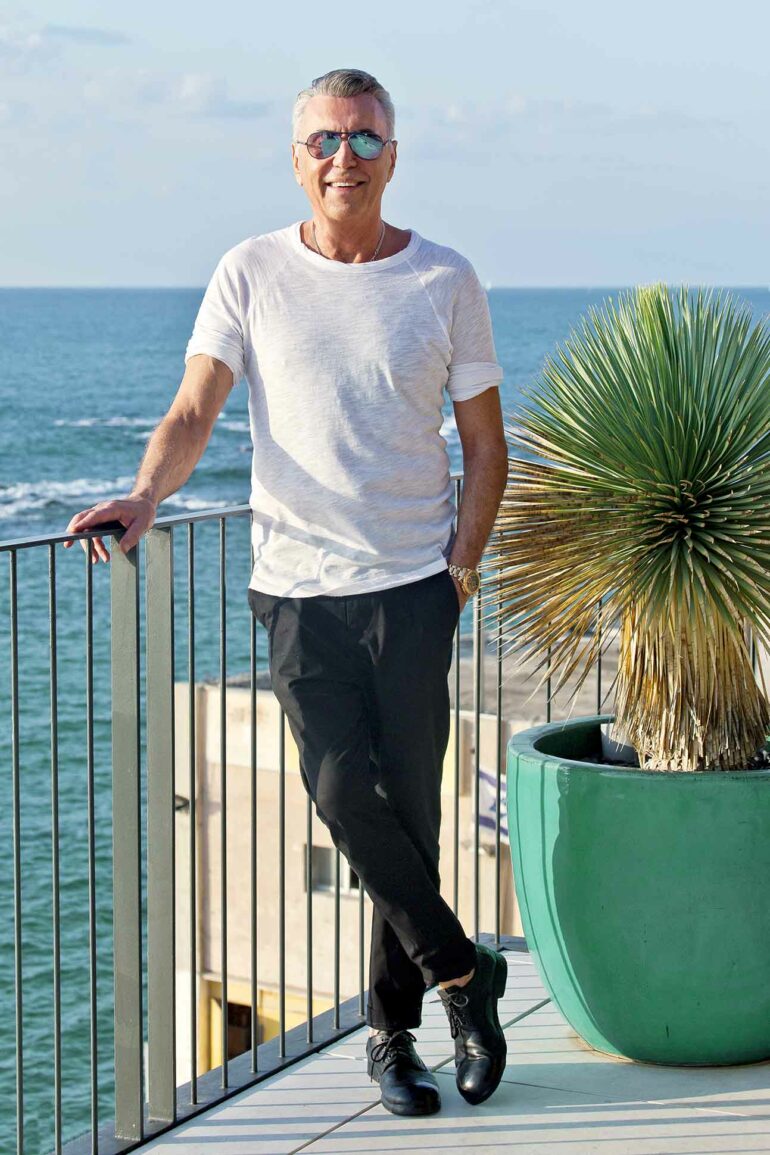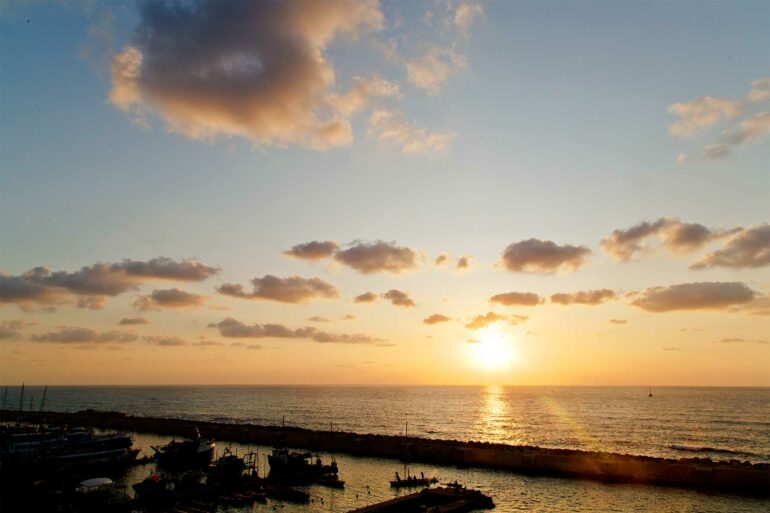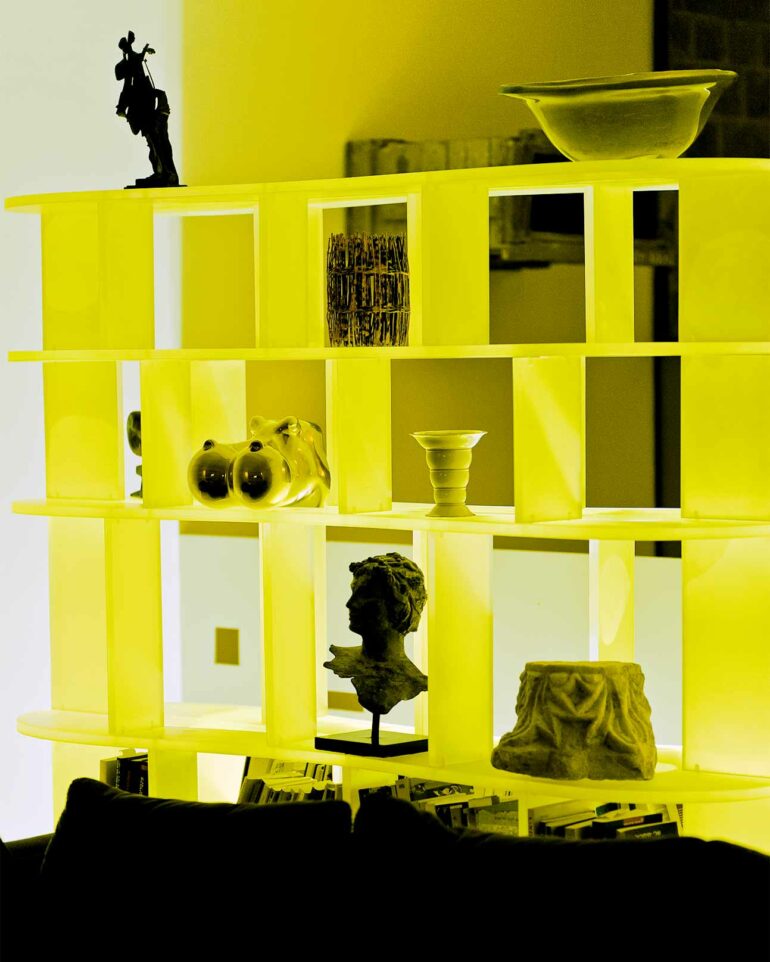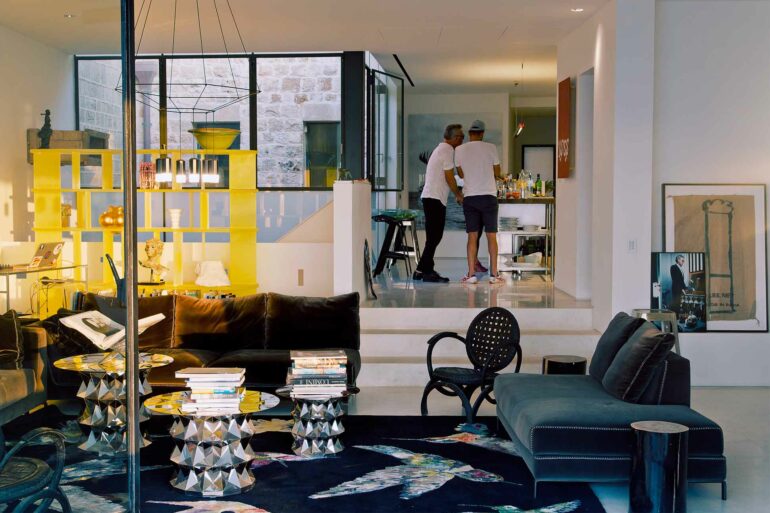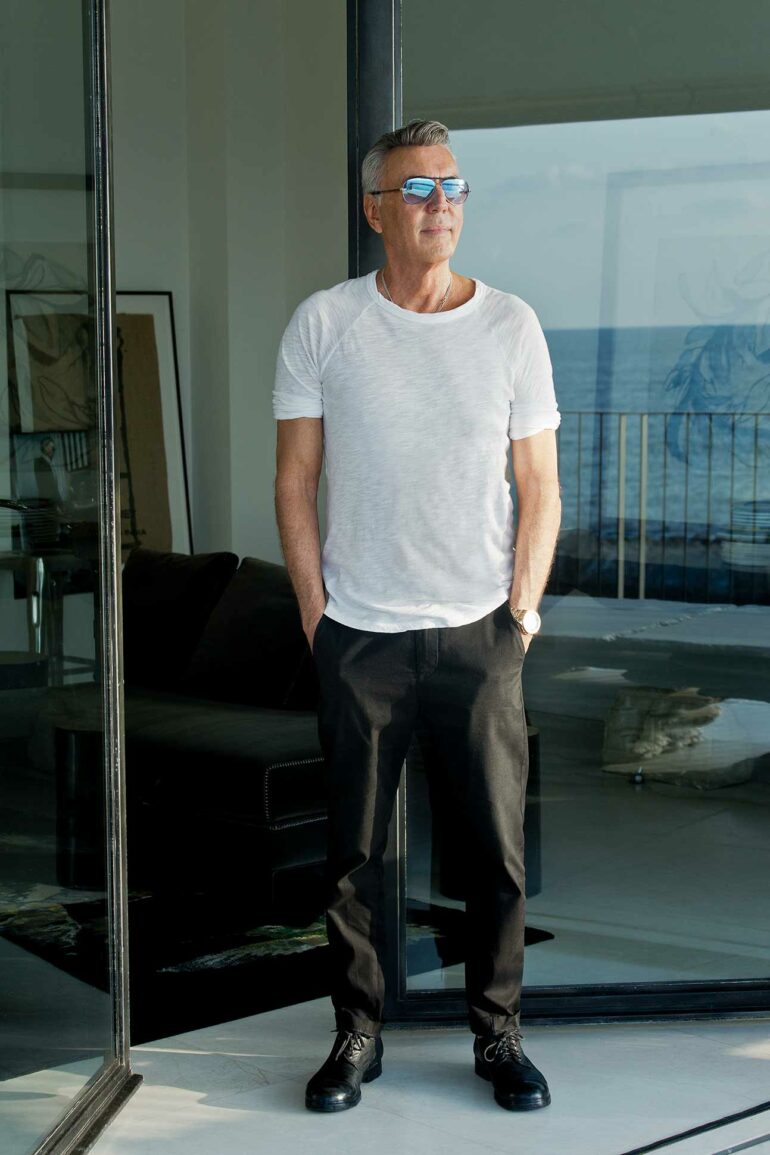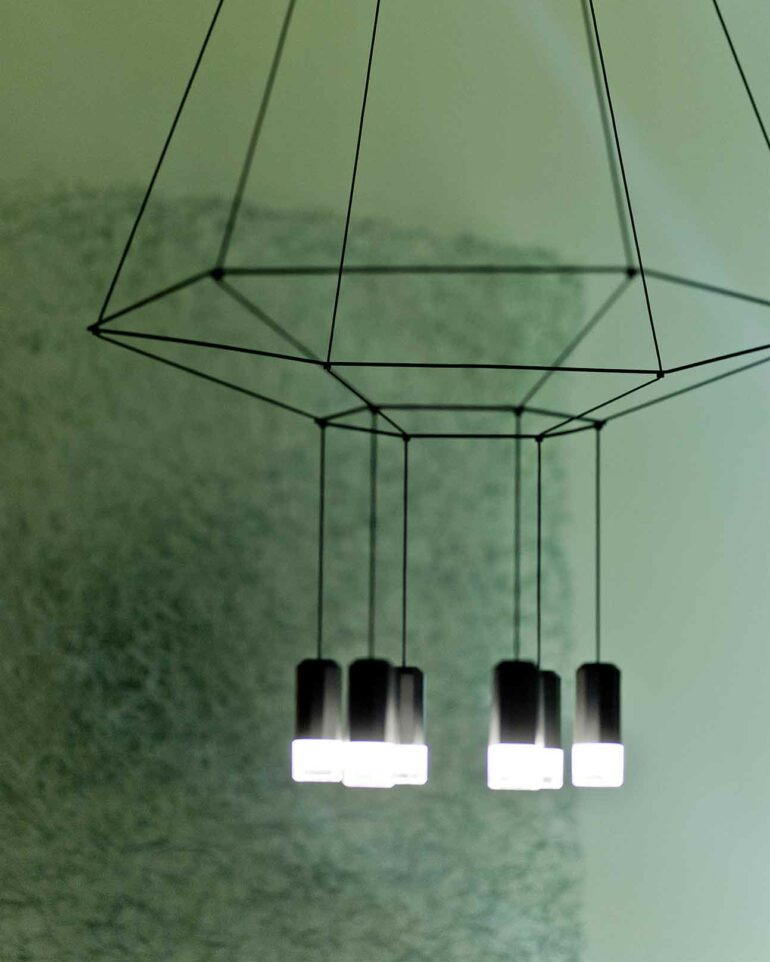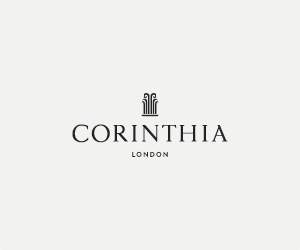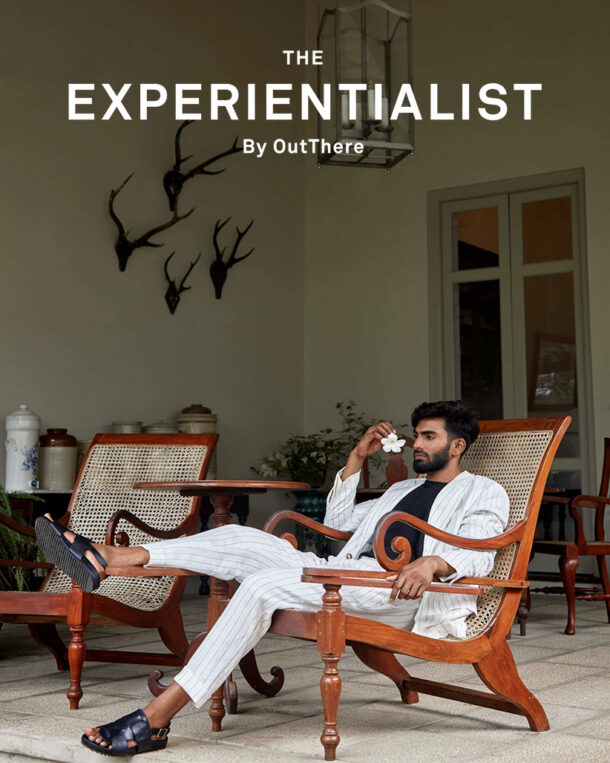“Gay culture for me is the reason for Post-modern philosophy. Because we play with the false. Modernism was ‘this is the truth’. Post-modernism was ‘it’s all relative’. I think we had a huge part in creating that kind of thinking here.”
We talk about the Freudian origins of gay taste. The controversial book The Velvet Rage argued that the gay sensibility for style and design comes from the need to prove oneself valuable to society and has its roots in the denial of fatherly love.
“When those closest to you reject the real you, you have to lie,” Ilan concurs. “So you adapt, you change who you are. But you never get there, so we keep changing and we over-achieve. Gay men are very nostalgic; we connect more with nostalgia because it’s a fairytale world, a false world. We are longing for something that never existed.”
This is interesting to hear coming from a man who so openly embraces the present and who is, in a real sense, shaping the future. He opened his practice in 1981 and has worked across the gamut of architectural projects from urban planning and residential towers, to hotels, public buildings, offices, and private houses. In addition to architecture, the firm is also engaged in interior and even furniture design. One of Ilan’s iconic curvaceous yellow perspex bookshelves stands resplendent in his apartment. It’s reminiscent of Florentin Tower, a Pivko-designed development that forms part of the next wave of Tel Aviv’s evolution, prompted by the completion of the citywide light-rail network connecting Tel Aviv’s city centre to neighbouring areas. It’s a great time to be an architect in Tel Aviv. The cost of land here is already the highest in the Middle East, and the new light railway is projected to increase demand and value.
In addition to designing large-scale developments, Pivko is the choice ‘du jour’ for Israel’s elite who commission him to design bespoke houses for them. But for those less well-off he also offers an innovative solution: off-the-peg ‘Pivko houses’ designed to meet the need for new homes across the country. In Israel, it’s normal practice to build your own house on a plot of land purchased from the government. Once you have it, Pivko will recommend a few models of two-storey homes that he deems suitable. He and his team will then oversee the construction and outfitting, including the floor, bathroom and kitchen. The average cost for build-it-yourself homes is $1,200 per square metre, a Pivko house comes in at around $1,000 per square metre, and with the added benefit of precise, design and quality-controlled construction, making it a very attractive prospect.
“When I build a home for millionaires, I often use special materials that require specially trained craftsmen who are experts in each field. Pivko Houses will be of a very high standard, will look good and will be built of quality materials, but are designed so that any good craftsman will be able to build them, without any specialist knowledge.”
It’s an example of typical Israeli ingenuity and willingness to adapt and develop new ideas. The idea came to Pivko after observing the way that the fashion industry has evolved.
“Up until 30 years ago, to have a suit made for you, you had to go to a tailor who would take your measurements and then invest considerable effort in every detail, including the lining, the fabric and the stitching. In today’s world of big fashion brands, it’s a very different story. Much less work is invested in the suit itself, but rather in its design. So you don’t go to a tailor, but rather to a store, where you choose Versace, Armani or Dolce & Gabbana, and buy a luxury product off the peg and on the spot.”
The plots available to purchase for houses are almost identical in size and shape – rectangles covering half a dunam (1/8 acre) – which Pivko houses are designed to fit. Thus, they have the potential to be built all over the country.
As we wait for a car to the restaurant, we walk to the balcony and take in the sea and the warm night air. I ask if he would ever relocate.
“Why would I? I’m King of my town, but I mean, who knows? We live in a hectic world. I have a friend who keeps a thousand dollars in a hole somewhere just in case. And besides, ‘would you ever leave,’ is a bad question to ask a Jew,” he laughs.
We are silent for a bit, just listening to the sound of the sea. Then he takes up a different conversational strand entirely, concerning Mossad, the Israeli security service.
“You should never be attached to anything. I truly believe that is the only way to create.”
“Once, Mossad came to me and asked me to give a lecture to some of the big shots. They have lectures from people from creative disciplines. It’s because they feel that what they do is creative too. So I told them that when I’m working on something, I look at it as if I have never seen it before. I look at it with fresh eyes and sometimes when I’ve done that, I tear it up and scrap the whole thing. They were fascinated. And I said, in your case, it’s extremely important to be flexible. I’m really not in love with my work. I do it, then look at it as if it’s not mine. It’s the only way to analyse neatly. I told them to detach themselves because if you fall in love with a plan, you don’t want to change it. You should never be attached to anything. I truly believe that is the only way to create.”
And with that endorsement of the stoic philosophy of non-attachment, we head down to the waiting car and head off to a posh dinner and to experience the fabulous Tel Aviv nightlife, Pivko style.
A few days later Ilan invited me back over as he was having a few friends round for drinks. To my surprise, it transpires that it is, in fact, his 70th birthday party and I’m welcomed into his inner circle for the evening. I arrive just before sunset to find the place already buzzing with activity. The crowd ranged from people in their mid-20s to Ilan’s peers. I get talking to his PA who has been with him for decades and holds him in high regard; she enthused about his thirst for knowledge, curiosity and creativity.
“He’s full of surprises and has opened my eyes to things I would never have dreamt of,” she tells me.
I also meet his business mentor who talks about Ilan’s drive and focus. The evening rolls along until a break for some informal speeches. Unfortunately, most are in Hebrew, and I only catch the odd abridged translation, but it’s clear there’s a lot of love in the room. His Personal Trainer speaks about Ilan’s dedication and transformation, the evidence of which is clear to anyone. But looks aside, at 70 it’s evident that it is Ilan’s attitude that makes him youthful. He surrounds himself with interesting people, he has his finger on the pulse of the city and still parties like a 30-year-old.
It’s my last day in Tel Aviv, I’m at a vast outdoor, Offer Nissim gay dance event. So many people had told me I needed to be here that I extended my stay just to attend. At the height of the DJ’s euphoric set, I’m stood near the stage in front of a sea of tanned, shirtless Israeli Adonises, all dancing in unison. At the top of the hill overlooking this bacchanalian milieu, a white t-shirt catches my eye, it’s Ilan, the setting sun glinting off his trademark blue-tinted sunglasses. On his face, the contented smile of a man at the top of his game, living life to the full, personally invested in the city he calls home. A second later, a sea of bodies closes in around him. As I turn back to the DJ, I realise that I have never seen his eyes. I guess that when your star rises this brightly, you’ve just got to wear shades.
Photography by Martin Perry


